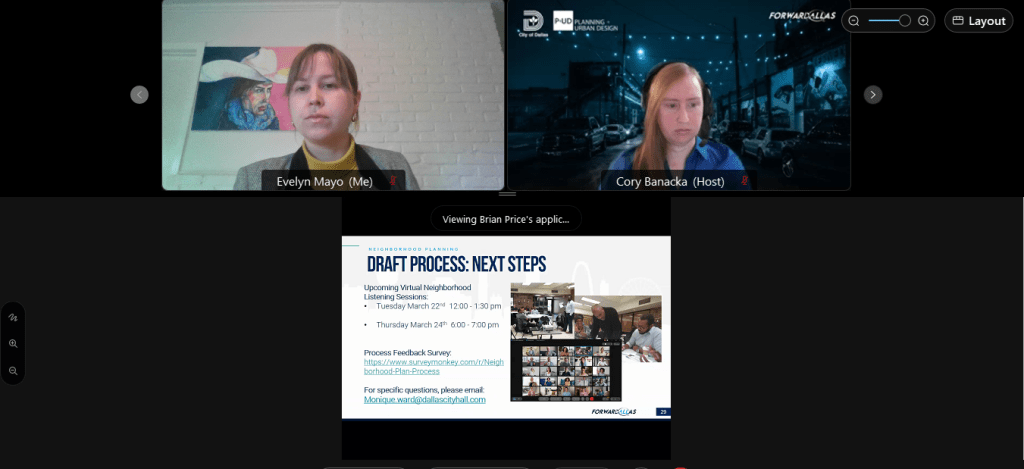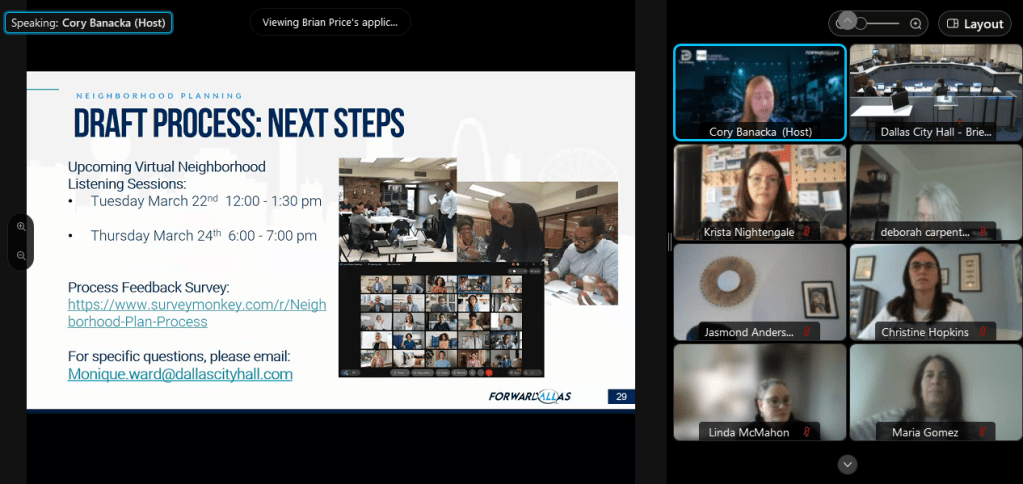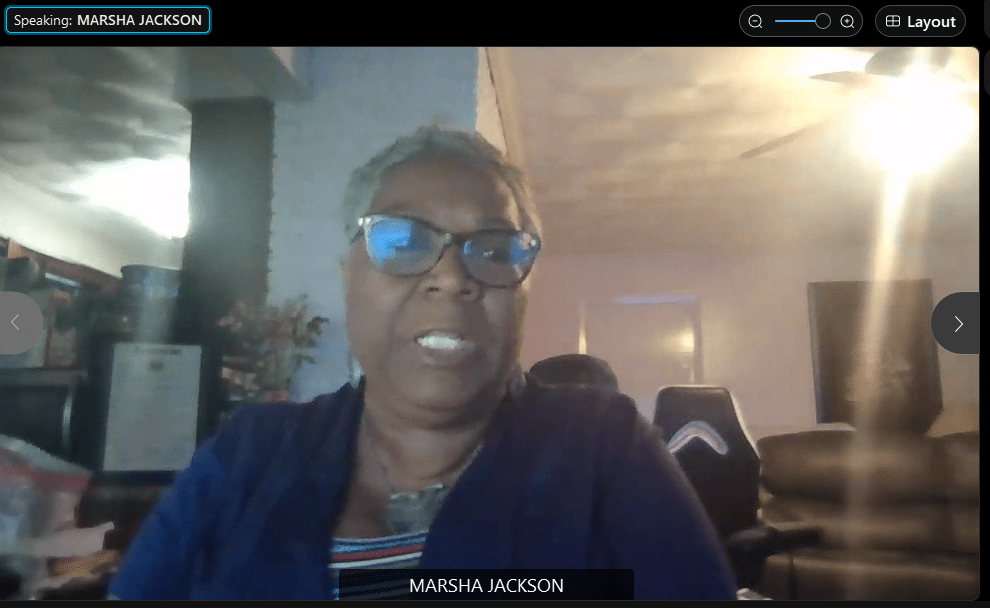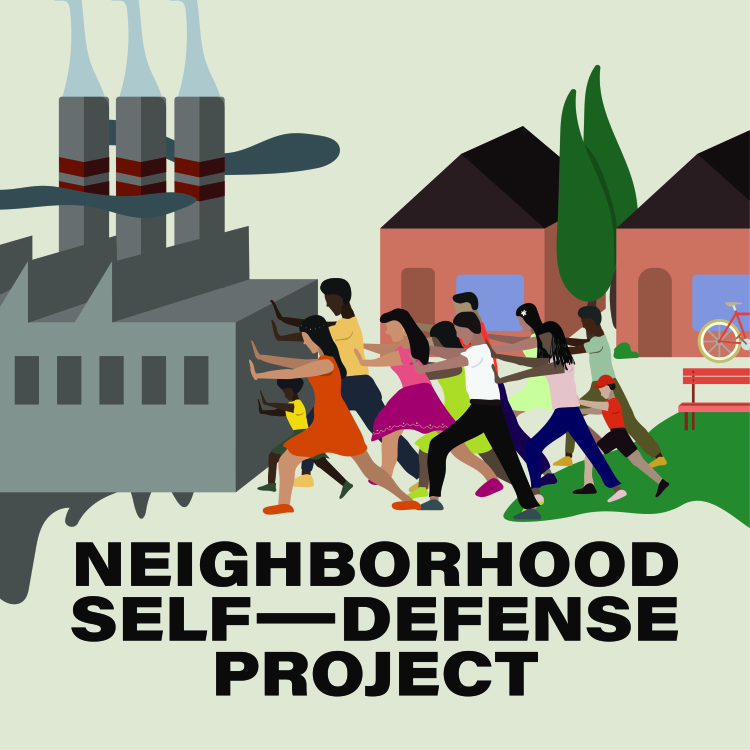
Restoring the Path to Policy for Neighborhood-Led Plans
Neighborhood Planning as Self-Defense
There are many member organizations of the Coalition that have supported the creation of neighborhood-led land use plans through the “Neighborhood Self-Defense Project” (NSDP). The NSDP was launched in collaboration between Southern Sector Rising, Downwinders at Risk and the Inclusive Communities Project in December 2019 to support the drafting of the Floral Farms Neighborhood-Led Land Use Plan with Neighbors United/Vecinos Unidos.
Since then, Downwinders at Risk and Southern Sector Rising collaborated with West Dallas 1 and Singleton United/Unidos to draft the Singleton Corridor Neighborhood-Led Land Use Plan in West Dallas. Both plans are centered on undoing the racist zoning and land use policies that have caused environmental injustice and perpetuated fair housing issues, and to promote a vision that reflects the values of the residents in the community.
Learn more about the NSDP here.
The Tenth Street Residential Association drafted their neighborhood-led land use plan with the support from the Inclusive Communities Project and focuses on protecting and preserving the historic districts’ community and character.
Learn more about the Tenth Street Historic District Neighborhood-Led Plan here
Restoring the Path to Policy Neighborhood-Led Plans
When Floral Farms began their planning process, there were guidelines on how to move their neighborhood-led land use plan into city policy. This was articulated in the City of Dallas Neighborhood Planning Guide book promoted in 2019 and by other resident groups who had gone through the process themselves.
The document below is an outline for how to create and adopt a neighborhood-led plan according to past organizations who had gone through the process.
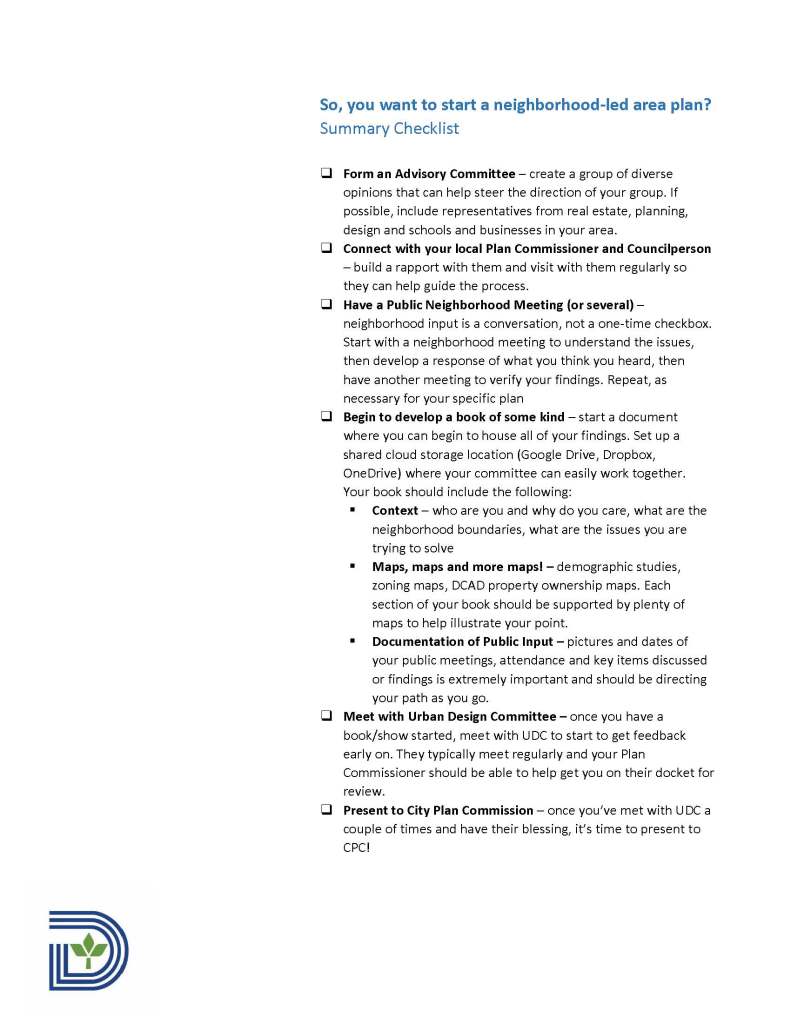
This PowerPoint is the City of Dallas PUD presentation to neighborhoods on how to create their own neighborhood-led plan from 2019.
So What Happened?
When Floral Farms completed their draft neighborhood-led land use plan in November 2020 and approached PUD to discuss the draft plan and how to work towards adoption, they were told there was no path forward.
Specifically, the “Urban Design Committee” that previously reviewed neighborhood-led plans and then made recommendations to the City Plan Commission, was apparently slated to be dissolved and replaced with a new committee that would oversee ForwardDallas and plan implementation. No timeline for when this committee would be formed, or when the residents would be able to work with them to adopt their neighborhood plan was provided by PUD.
The City Plan Commission was briefed on the removal of the path to policy for neighborhood-led plans in April 2021. That presentation is provided below.
The Coalition for Neighborhood Self-Determination formed in May 2021 in response specifically to reverse course and restore the path to policy for neighborhood-led land use plans. The handouts below are the first ones used to recruit organizations to join the Coalition in May 2021.
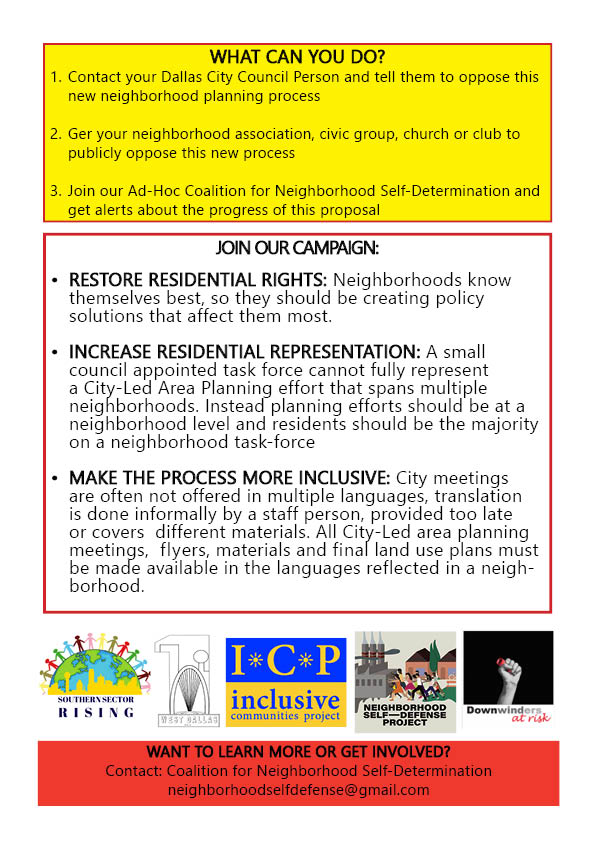

What’s the Status Now?
The former Director of Planning and Urban Design who removed the path to policy for neighborhood-led plans, Peer Chacko, resigned in July 2021. He was replaced by Julia Ryan, who has been leading PUD since then. In October 2021, the Steering Committee for the Coalition met with Director Ryan and other key staff in PUD to promote the restoration of the path to policy for neighborhood-led plans. After a series of meetings, PUD agreed to formalize a neighborhood-led planning policy. There have been two rounds of “Listening Sessions” hosted by Monique Ward with PUD on the policy, and a draft policy is available online here for review.
Fill out the survey to provide feedback to PUD on their proposed policy.
The Coalition has drafted our own proposed policy for neighborhood-led planning based on the experiences of Tenth Street, Floral Farms and Singleton United/Unidos. We are providing our feedback to PUD and will be monitoring the changes to their policy.
PUD will be releasing the draft application that is mentioned in their policy and the draft prioritization checklist for community review. We will be monitoring this closely and will provide updates when available.
